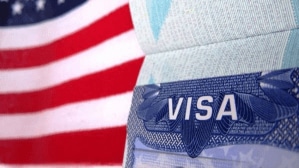
Recession
A recession is an economic term that refers to a period of negative economic growth that lasts for at least two consecutive quarters, meaning the economy is contracting rather than expanding. During a recession, several economic indicators, such as gross domestic product (GDP), employment, consumer spending, and business investment, decline significantly.
Key Characteristics of a Recession:
- Negative GDP Growth: The most crucial indicator of a recession is negative GDP growth for two consecutive quarters or more. This means the total economic output of a country is shrinking.
- Rising Unemployment: During a recession, businesses often cut costs by reducing their workforce. Unemployment rates rise as a result, leading to job losses and financial hardships for many individuals and families.
- Decline in Consumer Spending: People tend to reduce their spending during economic uncertainty, which further affects businesses’ revenues, leading to job losses and business closures.
- Decreased Business Investment: Businesses may delay or cancel investment projects due to reduced consumer demand and economic uncertainty. This reduction in investment can have long-term implications for economic growth.
- Reduced Industrial Production: Industries and manufacturing sectors often experience a decline in production as demand for goods and services decreases.
- Credit Crunch: Banks and financial institutions may become more cautious about lending money, making it harder for individuals and businesses to obtain credit, which can further dampen economic activity.
Causes of a Recession:
Recessions can be caused by various factors, including:
- Financial Crises: Banking crises, stock market crashes, or housing market collapses can trigger recessions.
- High Inflation: Rapid and unsustainable increases in prices can lead to reduced consumer spending and investment.
- High-Interest Rates: Central banks may raise interest rates to combat inflation, which can discourage borrowing and spending.
- Global Economic Factors: Economic slowdowns in major trading partners can reduce demand for exports, affecting a country’s economy.
- Policy Decisions: Government policies, such as tax changes or reductions in public spending, can impact economic growth.
Government Responses:
During a recession, governments and central banks often implement various economic stimulus measures, such as lowering interest rates, increasing government spending, and implementing tax cuts, to boost economic activity, stabilize financial markets, and prevent a deeper economic downturn.
It’s important to note that while recessions are a natural part of the economic cycle, their impacts can be mitigated through appropriate fiscal and monetary policies. Economies can recover from recessions, often leading to periods of economic expansion and growth.
Read More
Related News






















